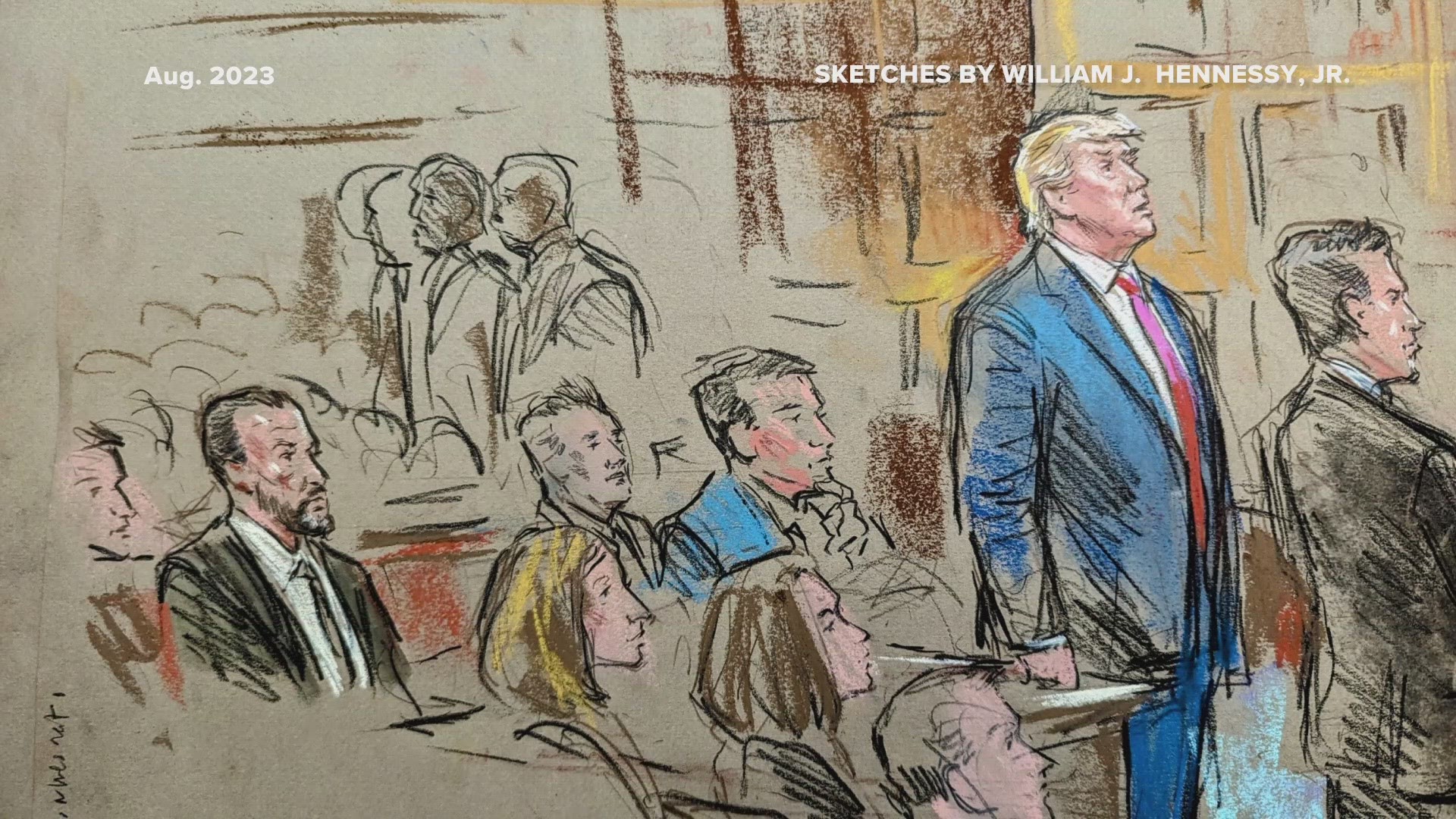WASHINGTON — A federal appeals court panel appeared deeply skeptical Tuesday as an attorney for former President Donald Trump argued he should enjoy absolute immunity from criminal charges alleging he defrauded the country in his efforts to overturn the 2020 election.
The panel peppered Dean John Sauer, a former Missouri solicitor general representing Trump in his appeal, with questions for approximately 45 minutes — probing his arguments that neither Trump nor any other president can be prosecuted for official actions while in office. Sauer advanced an expansive theory of presidential immunity that would even cover selling pardons and assassinating political rivals.
"You're saying a president could sell pardons? Could sell military secrets? Could order Seal Team 6 to assassinate a political rival?" U.S. Circuit Judge Florence Pan, a nominee of former President Barack Obama, asked.
Sauer responded that he believed a former president could only be prosecuted if they were first impeached by the U.S. House and convicted in the U.S. Senate for similar or related conduct. Trump was impeached by the House after the Jan. 6 Capitol riot for incitement of insurrection but acquitted in the Senate by a 57-43 vote.
Trump, through Sauer, has argued that the Constitution protects him from criminal liability for an official acts while president and that his efforts to overturn the results of the 2020 election represented him doing his duty to try to find voter fraud. Trump, who appeared in person to listen to arguments Tuesday, posted on Truth Social before the hearing that "uncovering voter should grant me Presidential Immunity against Fake Biden Indictments."
The panel, however, appeared roundly skeptical of Trump's claims and pushed back repeatedly on Sauer's arguments.
"I think it's paradoxical to say that his constitutional duty to take care that the laws of the country be faithfully executed allows him to violate criminal law," U.S. Circuit Judge Karen LeCraft Henderson, who was first nominated to the federal bench by former President Ronald Reagan, said.
Last month, U.S. District Judge Tanya S. Chutkan rejected Trump’s immunity claims and refused to dismiss four felony counts against him, writing that Trump’s time as president did not “bestow on him the divine right of kings to evade the criminal accountability that governs his fellow citizens.”
In an amicus brief filed with the court last month, the left-wing advocacy group American Oversight argued the Circuit should dismiss Trump's appeal outright under a 1989 Supreme Court precedent. On Tuesday, the judges pressed assistant special counsel James Pearce on why they shouldn't follow that logic.
Pearce said it was in the Justice Department's and the public's interest to have Trump's immunity claims ruled on now. The special counsel has pushed for a speedy trial, but Trump's appeal has held proceedings at bay while the Circuit considers it. Last month, special counsel Jack Smith took the unusual step of asking the Supreme Court to take up the case even before the Circuit had heard it, although the court denied that request.
Pearce, who was previously with the DOJ's public integrity section, told the judge's that Trump's immunity claims, if affirmed, would create an "extraordinarily frightening future" in which a president could commit any number of crimes while in office and then resign to avoid criminal liability.
Sauer said Tuesday if the panel ruled against them they were prepared to request an en banc hearing before the full Circuit and to seek an appeal before the Supreme Court if necessary. There was no time frame for when the panel might rule, although the court has indicated it intends to act swiftly on the matter.

